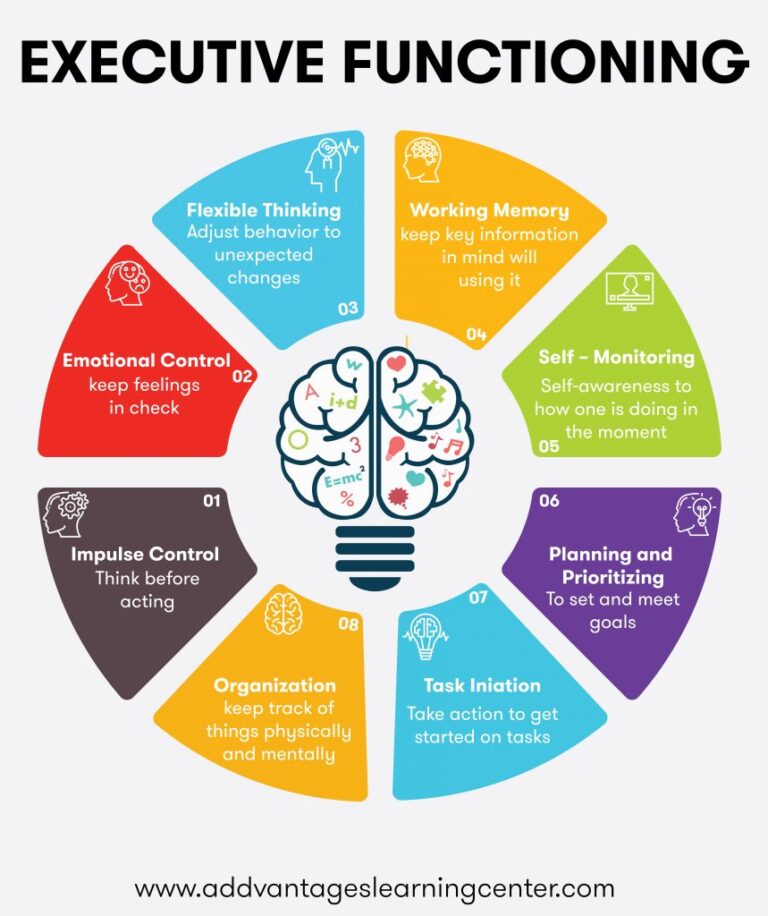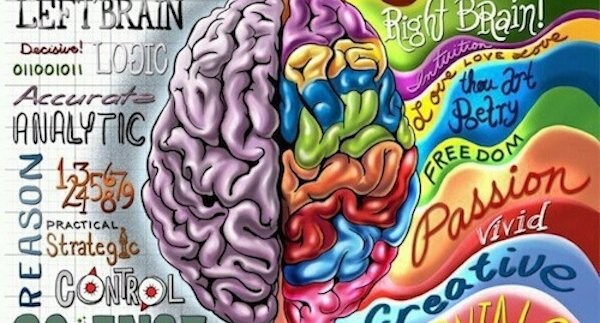As essential as our personal skills may be, none of us are born with the skills that enable us to control impulses, make decisions and plans, and/or remain pinpoint focused.
What we are born with, is the potential to develop these specific capacities… or not to develop them… dependent upon our own personal experiences through early life. This includes infancy, the entire measure of our childhood, and well through our adolescent years. Yes, our genes provide those blueprints, but it is our early environments that we live in and that our children live in that will eventually have been created, structured, honed, and leaves behind those lasting signatures on our lives and our genes. What we master is known as Executive Function.
Although it sounds high-minded, executive function simply means to be able to “execute” or carry out any sort of task or function… in order to get things done. “Function” is the action, role, or process that we use to accomplish these things: thus, Executive Function.
Granted, the influence and understanding of how or whether our children’s individual genetic potential is expressed through brain circuits that underlie the executive function capacities is a vast undertaking. These essential skills are developed through practice, practice, and more practice. They are strengthened and sharpened by the experiences through which they are both applied and refined. In the end, providing the essential support that children need in order to establish, build and retain these particular skills come to them at home, in child care, and in other settings where they experience regularly the simple structure of society and its responsibilities.
The ability for our children to be able to focus, to grasp, and to work a range of simple to complex information in their mind is essential. The skills to work through filtering out distractions, and switching gears and directions, much like driving or even being the air traffic controller in a busy airport, is the hallmark of a fully developed executive function control that we hope our children will eventually command.
To look at it in more detail there are 11 specific Executive Function Skills. Each of these areas involves either thinking (cognition) or performing (behaviour). As a child grows you may recognize these 11 trait behaviours as they emerge.
Thinking
- Organisation: a child starts to become systematic with their toys and other possessions. This includes their thoughts and actual plans… whereby they play with their toys in accurate context (eg; lining up cars, making engine noises when they move them)
- Planning and Prioritising: Beginning to set and achieve small accomplishments and goals.
- Building and Engaging Memory: crafting and increasing the ability for more complex organisation and multitasking; the ability to keep a number of things going all at the same time.
- Managing Time: building up the ability to measure time and tasks in unison. The wherewithal to set and meet specific deadlines.
- Metacognition /Self-Monitoring: Engaging and accurately being able to assess own individual strengths and requirements. Knowing what we know and (more importantly) what we don’t know, informs us how to get our needs met.
Doing (Behaviour)
- Impulse Control: Pausing to take a more considered approach rather than just rushing in.
- Emotional Control: understanding and moderating emotions, and reactions to all manner of situations, activities, and stimuli.
- Increased and Sustained Attentiveness: Increased focus, blocking out distraction, ability to apply oneself to the task and concentrate exclusively.
- Task Initiator: Motivated to not only begin, but follow through and finish up on all sorts of varied tasks.
- Self-Motivation: Commencement and persistence in an increasing plethora of tasks.
- Discerning Thought and Outcome: The growth of adaptability and judgement on a variety of levels, leading to more mature decisions and deeper thought processes.
On the contrary side, a deficiency or lack of these 11 skills builds to a strong disadvantage in peer groups and in life in general. Poor performance in school classrooms, lack of class participation, lost or forgotten homework assignments, sloppy last-minute work, and a stack of mounting careless mistakes. These all are hallmarks of young people with executive dysfunction. School life is a battle. Home life is chaos. Emotional outbursts and erratic thoughts and speech at home across the spectrum of activities, be it studies, sports, entertainment, or home chores are very strong indicators help is needed here immediately.
Even in the midst of such confusion as a youngster, it is good to know that a person’s level of competence can mature and increase and change for the better all the way up until the age of 25.
A child’s brain power matures gradually throughout young childhood through the teen years and into the early and even late 20s. In scientific terms, this development is pinpointed in what is known as the “prefrontal cortex”. That’s the area of the brain responsible for the majority of the final executive functions that each person develops.
To be more precise in a brief summation, Executive Function in finality refers to a specific group of abilities, talents, and expertise both flowing in and flowing out through multiple streams of information, all the same time. And yet there’s far more to consider. One must also be able, at the same time, to monitor all the errors, make firm incorrect decisions in the light of whatever available information may be had, relate, repeat, and revise, any sort of plan or direction as may be necessary to exact the highest and best outcome for our children. And did we mention in the midst of all this growth, failure, success, and simply the daily grind of life going on, one must be able to resist the urge to let any kind of anger, depression, sadness, frustration, or any other emotion step in and lead to hasty actions and decisions that are inadequate.
We will be studying much further into the beginnings, the developing roots, the growth, and finally the maturity of the 11 Executive Functions in this series.








